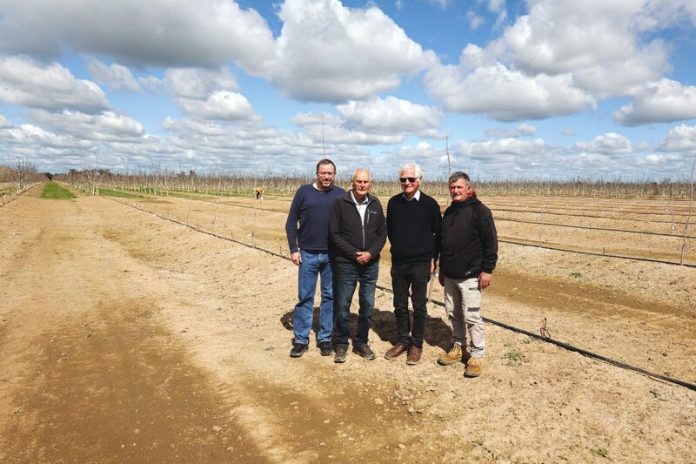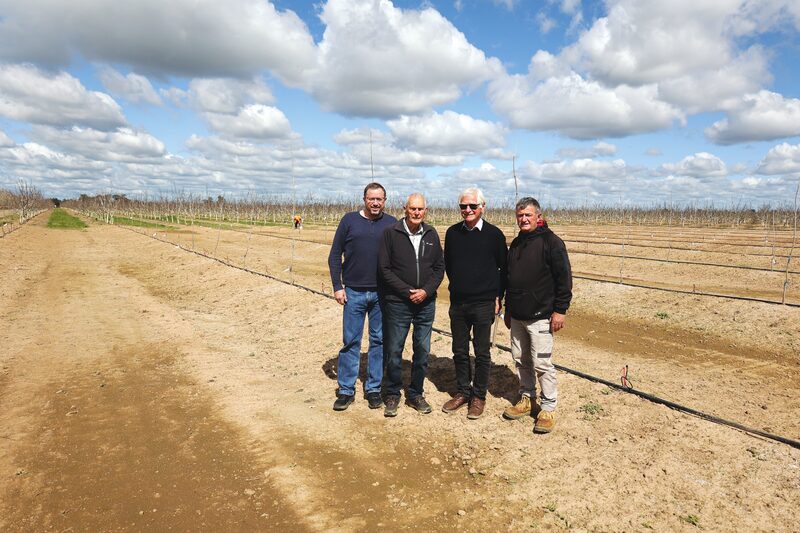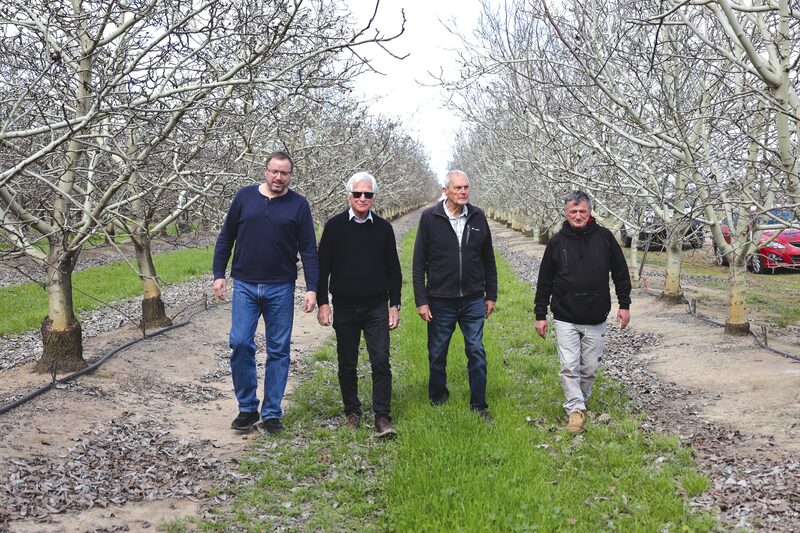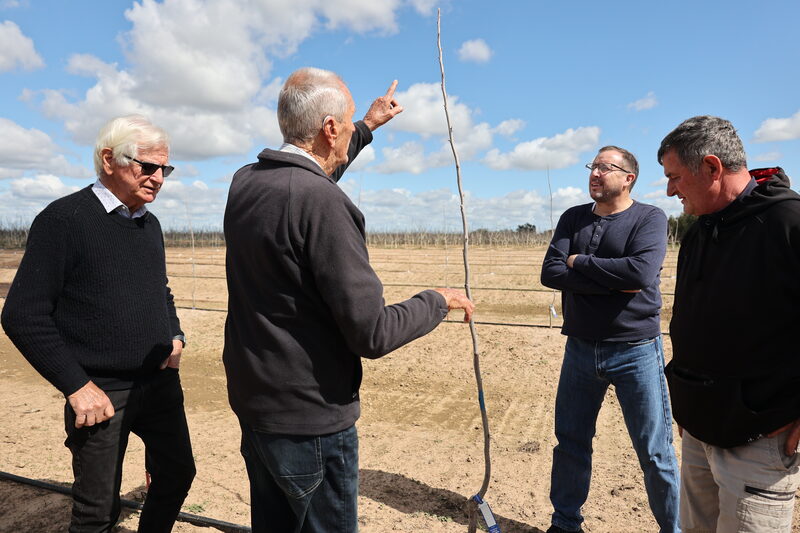
Pecans take root in the GV Local farm trials new crop with big potential
By Deanne Jeffers
The Goulburn Valley has long been known for its apples, pears, and peaches. But at Premier Australian Walnuts, Lemi Sherolli is planting a new legacy, one that could change the region’s agricultural landscape for generations.
Sixteen years ago, Lemi made a bold move, replacing much of his tomato crops with walnut trees. Today, his 80-acre farm produces 100-150 tonnes of walnuts annually, with production expected to climb to 250-300 tonnes as the trees mature.
Now, Lemi and a team of former horticultural researchers are taking on a new kind of nut: pecans! Lemi has teamed up with Hein van Kralingen, Harold Adem and Bas van den Ende to plant the first commercial-scale pecan orchard in the Goulburn Valley.
Traditionally, pecans are grown as tall, widely spaced trees — around 100 per hectare or less — requiring specialised pruning machinery and long waits of eight to nine years before commercial production begins. This has discouraged many Australian growers, who often favour crops like almonds for earlier returns.
Researchers are applying lessons from high-density fruit and walnut production using the Tatura system developed by a team of researchers at the Tatura Research Institute 50 years ago.

By planting smaller pecan trees just 6m apart in rows and 3m between trees — 555 per hectare — growers can bring trees into production in as little as four years. Keeping the trees smaller makes them easier to care for, requires less equipment, and focuses the tree’s energy on growing nuts rather than wood.
“This approach changes everything,” Mr Adem said. “We’re growing a crop that’s easier to manage, more efficient, and can be enjoyed for generations.”
The Goulburn Valley’s climate is well-suited to pecans, which thrive in long hot summers and cold winters. The trees are hardy, with few pests or diseases, and they don’t need bees for pollination, just a little wind and strategic planting. They’re also long-lived, often producing for more than 100 years, and can be harvested mechanically, making them a low-labour option for farmers.
Beyond their commercial appeal, pecans and walnuts are a healthy addition to any diet. Packed with nutrients and antioxidants, they support heart health, blood sugar management, and immunity.
Lemi’s demonstration block is open for anyone curious about this modern approach to nut growing. Researchers and farmers alike are invited to see how high-density pecan orchards could be the next big thing in the Goulburn Valley, offering a sustainable, long-term crop that builds on the region’s rich farming heritage.
To find out more or arrange a viewing, contact Lemi on 0402 902 225, Hein on 0419 549 852, or Harold on 0407 335 231.







